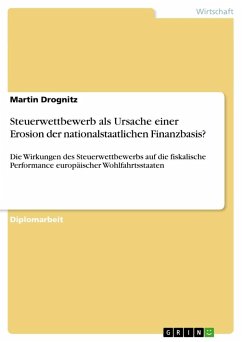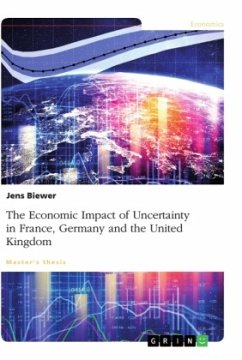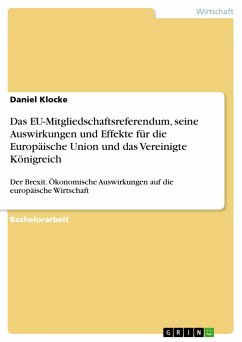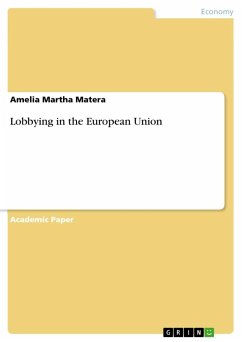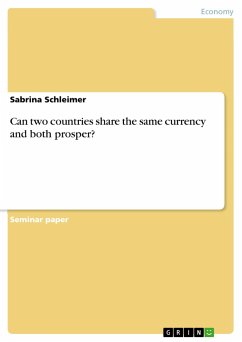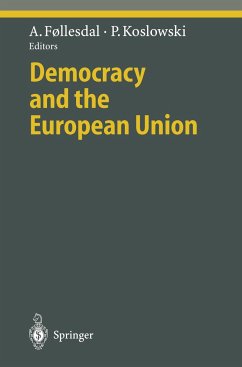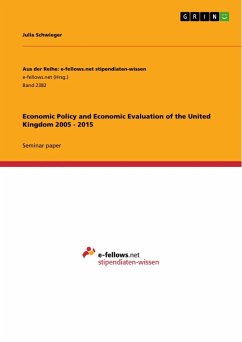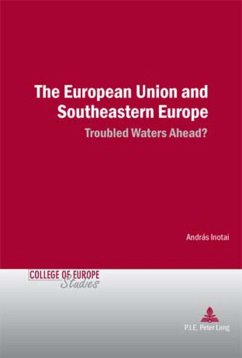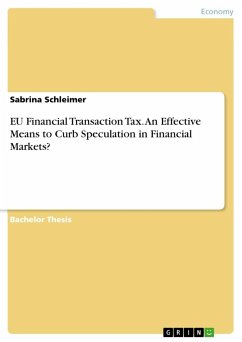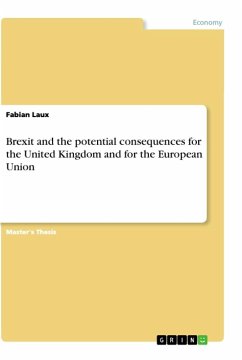
Brexit and the potential consequences for the United Kingdom and for the European Union

PAYBACK Punkte
0 °P sammeln!
Master's Thesis from the year 2019 in the subject Business economics - Economic Policy, grade: 1,7, University of Trier (Lehrstuhl für Internationale Wirtschaftspolitik), language: English, abstract: Is a hard Brexit economically better, or should it be tried to retain the existing economic relations as much as possible? What economic and political impacts will the Brexit have on the United Kingdom and on the European Union? Finding the right answer to these questions is incredibly difficult, since it is still unclear how Britain and the EU will regulate their relations when Brexit takes plac...
Master's Thesis from the year 2019 in the subject Business economics - Economic Policy, grade: 1,7, University of Trier (Lehrstuhl für Internationale Wirtschaftspolitik), language: English, abstract: Is a hard Brexit economically better, or should it be tried to retain the existing economic relations as much as possible? What economic and political impacts will the Brexit have on the United Kingdom and on the European Union? Finding the right answer to these questions is incredibly difficult, since it is still unclear how Britain and the EU will regulate their relations when Brexit takes place; hence, all critical evaluations of the consequences can only be based on assumptions.By answering these questions, I will show that Brexit is most likely to harm the English and European economies. This is independent of whether a soft or a hard Brexit occur. However, it should be mentioned that at the time of writing this master thesis, the shape of the future EU-UK relations is unclear.The United Kingdom (UK) joined the European Community in 1973. Only two years later, there was a first referendum in which the British voted on the membership in the Community. Sixty-four percent of voters used their voting rights, and 67 percent of these voters spoke in favour of remaining in the European Community. Since then the British have seen the European cooperation only as having added value in the single market, but the goal of a political union has remained foreign to them.Due to the pressure of the UK Independence Party (UKIP), England's right-wing political party led by Nigel Farage, on British Prime Minister David Cameron to hold a referendum on the membership of the EU, Cameron criticized in his speech at Bloomberg in 2013, among other things, the high level of debt or declining trust in Europe's institutions. The British feel deceived by the European Union, as it draws more and more power and concludes new contracts without responding to the interests of the United Kingdom.Many residents of Britain wonder, as Cameron reports, why they cannot have their only reason for entering the EU, namely, a common market. The main purpose of the European Union is to ensure wealth. The EU is only a means to achieve affluence, democracy and stability. Britain is characterized by independence and openness, as well as by the passion of its people to defend their sovereignty. Cameron announced that there will be another referendum on the disposition of the UK in the EU.




